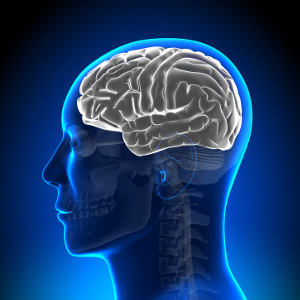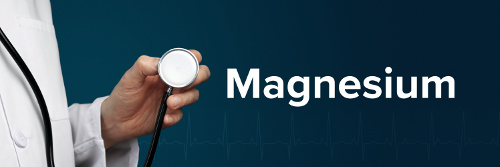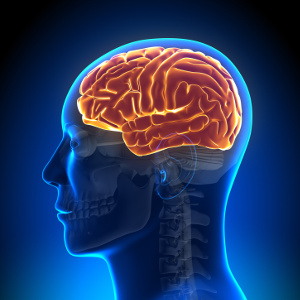afterLoad (456.41KB) (559μs)
afterInitialise (1.28MB) (20.72ms)
afterRoute (869.86KB) (9.69ms)
beforeRenderComponent com_tags (20.38KB) (298μs)
afterRenderComponent com_tags (1.52MB) (47.94ms)
afterDispatch (27.06KB) (2.83ms)
beforeRenderRawModule mod_articles_category (READ MORE...) (388.12KB) (10.33ms)
Before Access::preloadComponents (all components) (56.7KB) (496μs)
After Access::preloadComponents (all components) (103.05KB) (614μs)
Before Access::getAssetRules (id:8 name:com_content) (840B) (17μs)
After Access::getAssetRules (id:8 name:com_content) (7.05KB) (39μs)
afterRenderRawModule mod_articles_category (READ MORE...) (6.33KB) (77.21ms)
beforeRenderRawModule mod_tags_popular (Search) (4.81KB) (614μs)
afterRenderRawModule mod_tags_popular (Search) (1.51KB) (29.33ms)
beforeRenderRawModule mod_custom (Remember to download Heart Healthy Seniors) (816B) (27μs)
afterRenderRawModule mod_custom (Remember to download Heart Healthy Seniors) (4.86KB) (237μs)
beforeRenderRawModule mod_custom (Get additionel and more detailed knowledge ) (752B) (14μs)
afterRenderRawModule mod_custom (Get additionel and more detailed knowledge ) (1.67KB) (28μs)
beforeRenderRawModule mod_custom (BOOST YOUR IMMUNE DEFENSE) (608B) (10μs)
afterRenderRawModule mod_custom (BOOST YOUR IMMUNE DEFENSE) (928B) (22μs)
beforeRenderRawModule mod_custom (Are you taking supplements) (736B) (9μs)
afterRenderRawModule mod_custom (Are you taking supplements) (1.03KB) (19μs)
beforeRenderRawModule mod_custom (Antiaging) (720B) (9μs)
afterRenderRawModule mod_custom (Antiaging) (1.02KB) (19μs)
beforeRenderRawModule mod_custom (Exercise) (720B) (9μs)
afterRenderRawModule mod_custom (Exercise) (1.02KB) (18μs)
beforeRenderRawModule mod_custom (Check this before you buy a Q10 product) (752B) (9μs)
afterRenderRawModule mod_custom (Check this before you buy a Q10 product) (944B) (18μs)
beforeRenderRawModule mod_custom (Chronic fatigue tied Alan to his bed but Q10 capsules saved him:) (245.53KB) (2.04ms)
afterRenderRawModule mod_custom (Chronic fatigue tied Alan to his bed but Q10 capsules saved him:) (960B) (43μs)
beforeRenderModule mod_custom (Chronic fatigue tied Alan to his bed but Q10 capsules saved him:) (768B) (4μs)
afterRenderModule mod_custom (Chronic fatigue tied Alan to his bed but Q10 capsules saved him:) (1.3KB) (57μs)
beforeRenderRawModule mod_custom (Cholesterol-lowering without side effects:) (368B) (13μs)
afterRenderRawModule mod_custom (Cholesterol-lowering without side effects:) (2.19KB) (24μs)
beforeRenderModule mod_custom (Cholesterol-lowering without side effects:) (752B) (2μs)
afterRenderModule mod_custom (Cholesterol-lowering without side effects:) (1.28KB) (30μs)
beforeRenderModule mod_articles_category (READ MORE...) (21.32KB) (326μs)
afterRenderModule mod_articles_category (READ MORE...) (1.25KB) (38μs)
beforeRenderModule mod_tags_popular (Search) (5.17KB) (13μs)
afterRenderModule mod_tags_popular (Search) (1.27KB) (24μs)
beforeRenderModule mod_custom (Remember to download Heart Healthy Seniors) (1.17KB) (21μs)
afterRenderModule mod_custom (Remember to download Heart Healthy Seniors) (1.3KB) (25μs)
beforeRenderModule mod_custom (Get additionel and more detailed knowledge ) (368B) (9μs)
afterRenderModule mod_custom (Get additionel and more detailed knowledge ) (1.3KB) (38μs)
beforeRenderModule mod_custom (BOOST YOUR IMMUNE DEFENSE) (224B) (11μs)
afterRenderModule mod_custom (BOOST YOUR IMMUNE DEFENSE) (1.28KB) (23μs)
beforeRenderModule mod_custom (Are you taking supplements) (352B) (9μs)
afterRenderModule mod_custom (Are you taking supplements) (1.28KB) (22μs)
beforeRenderModule mod_custom (Antiaging) (336B) (9μs)
afterRenderModule mod_custom (Antiaging) (1.27KB) (19μs)
beforeRenderModule mod_custom (Exercise) (336B) (9μs)
afterRenderModule mod_custom (Exercise) (1.25KB) (20μs)
beforeRenderModule mod_custom (Check this before you buy a Q10 product) (352B) (9μs)
afterRenderModule mod_custom (Check this before you buy a Q10 product) (1.28KB) (21μs)
beforeRenderRawModule mod_menu (Main menu-US) (20.94KB) (550μs)
afterRenderRawModule mod_menu (Main menu-US) (152.66KB) (1.41ms)
beforeRenderModule mod_menu (Main menu-US) (720B) (5μs)
afterRenderModule mod_menu (Main menu-US) (4.36KB) (55μs)
beforeRenderRawModule mod_languages (Sprogskift) (3.44KB) (17μs)
afterRenderRawModule mod_languages (Sprogskift) (26.82KB) (1.54ms)
beforeRenderModule mod_languages (Sprogskift) (720B) (6μs)
afterRenderModule mod_languages (Sprogskift) (5.31KB) (21μs)
beforeRenderRawModule mod_finder () (6.34KB) (11μs)
afterRenderRawModule mod_finder () (214.16KB) (1.91ms)
beforeRenderModule mod_finder () (704B) (5μs)
afterRenderModule mod_finder () (5.79KB) (33μs)
beforeRenderRawModule mod_custom () (6.62KB) (139μs)
afterRenderRawModule mod_custom () (22.66KB) (856μs)
beforeRenderModule mod_custom () (704B) (6μs)
afterRenderModule mod_custom () (1.23KB) (51μs)
beforeRenderRawModule mod_menu (Main menu-US) (5.07KB) (100μs)
afterRenderRawModule mod_menu (Main menu-US) (5.8KB) (630μs)
beforeRenderModule mod_menu (Main menu-US) (720B) (4μs)
afterRenderModule mod_menu (Main menu-US) (1.25KB) (43μs)
beforeRenderRawModule mod_languages (Sprogskift Mobil) (912B) (17μs)
afterRenderRawModule mod_languages (Sprogskift Mobil) (3.89KB) (686μs)
beforeRenderModule mod_languages (Sprogskift Mobil) (720B) (4μs)
afterRenderModule mod_languages (Sprogskift Mobil) (1.27KB) (32μs)
beforeRenderRawModule mod_finder () (2.3KB) (10μs)
afterRenderRawModule mod_finder () (6.29KB) (537μs)
beforeRenderModule mod_finder () (704B) (5μs)
afterRenderModule mod_finder () (1.23KB) (44μs)
beforeRenderRawModule mod_custom () (8.66KB) (218μs)
afterRenderRawModule mod_custom () (904B) (133μs)
beforeRenderModule mod_custom () (704B) (3μs)
afterRenderModule mod_custom () (2.43KB) (26μs)
beforeRenderRawModule mod_custom () (688B) (83μs)
afterRenderRawModule mod_custom () (896B) (93μs)
beforeRenderModule mod_custom () (704B) (3μs)
afterRenderModule mod_custom () (2.71KB) (21μs)
afterRender (265.62KB) (4.45ms)
| 1 x afterRenderRawModule mod_articles_category (READ MORE...) (6.33KB) (35.37%) | 77.21ms |
| 1 x afterRenderComponent com_tags (1.52MB) (21.96%) | 47.94ms |
| 1 x afterRenderRawModule mod_tags_popular (Search) (1.51KB) (13.43%) | 29.33ms |
| 1 x afterInitialise (1.28MB) (9.49%) | 20.72ms |
| 1 x beforeRenderRawModule mod_articles_category (READ MORE...) (388.12KB) (4.73%) | 10.33ms |
| 1 x afterRoute (869.86KB) (4.44%) | 9.69ms |
| 1 x afterRender (265.62KB) (2.04%) | 4.45ms |
| 1 x afterDispatch (27.06KB) (1.29%) | 2.83ms |
| 1 x beforeRenderRawModule mod_custom (Chronic fatigue tied Alan to his bed but Q10 capsules saved him:) (245.53KB) (0.93%) | 2.04ms |
| 1 x afterRenderRawModule mod_finder () (214.16KB) (0.87%) | 1.91ms |
| 1 x afterRenderRawModule mod_languages (Sprogskift) (26.82KB) (0.71%) | 1.54ms |
| 1 x afterRenderRawModule mod_menu (Main menu-US) (152.66KB) (0.64%) | 1.41ms |
| 1 x afterRenderRawModule mod_custom () (22.66KB) (0.39%) | 856μs |
| 1 x afterRenderRawModule mod_languages (Sprogskift Mobil) (3.89KB) (0.31%) | 686μs |
| 1 x afterRenderRawModule mod_menu (Main menu-US) (5.8KB) (0.29%) | 630μs |
| 1 x After Access::preloadComponents (all components) (103.05KB) (0.28%) | 614μs |
| 1 x beforeRenderRawModule mod_tags_popular (Search) (4.81KB) (0.28%) | 614μs |
| 1 x afterLoad (456.41KB) (0.26%) | 559μs |
| 1 x beforeRenderRawModule mod_menu (Main menu-US) (20.94KB) (0.25%) | 550μs |
| 1 x afterRenderRawModule mod_finder () (6.29KB) (0.25%) | 537μs |
| 1 x Before Access::preloadComponents (all components) (56.7KB) (0.23%) | 496μs |
| 1 x beforeRenderModule mod_articles_category (READ MORE...) (21.32KB) (0.15%) | 326μs |
| 1 x beforeRenderComponent com_tags (20.38KB) (0.14%) | 298μs |
| 1 x afterRenderRawModule mod_custom (Remember to download Heart Healthy Seniors) (4.86KB) (0.11%) | 237μs |
| 1 x beforeRenderRawModule mod_custom () (8.66KB) (0.1%) | 218μs |
| 1 x beforeRenderRawModule mod_custom () (6.62KB) (0.06%) | 139μs |
| 1 x afterRenderRawModule mod_custom () (904B) (0.06%) | 133μs |
| 1 x beforeRenderRawModule mod_menu (Main menu-US) (5.07KB) (0.05%) | 100μs |
| 1 x afterRenderRawModule mod_custom () (896B) (0.04%) | 93μs |
| 1 x beforeRenderRawModule mod_custom () (688B) (0.04%) | 83μs |
| 1 x afterRenderModule mod_custom (Chronic fatigue tied Alan to his bed but Q10 capsules saved him:) (1.3KB) (0.03%) | 57μs |
| 1 x afterRenderModule mod_menu (Main menu-US) (4.36KB) (0.03%) | 55μs |
| 1 x afterRenderModule mod_custom () (1.23KB) (0.02%) | 51μs |
| 1 x afterRenderModule mod_finder () (1.23KB) (0.02%) | 44μs |
| 1 x afterRenderRawModule mod_custom (Chronic fatigue tied Alan to his bed but Q10 capsules saved him:) (960B) (0.02%) | 43μs |
| 1 x afterRenderModule mod_menu (Main menu-US) (1.25KB) (0.02%) | 43μs |
| 1 x After Access::getAssetRules (id:8 name:com_content) (7.05KB) (0.02%) | 39μs |
| 1 x afterRenderModule mod_articles_category (READ MORE...) (1.25KB) (0.02%) | 38μs |
| 1 x afterRenderModule mod_custom (Get additionel and more detailed knowledge ) (1.3KB) (0.02%) | 38μs |
| 1 x afterRenderModule mod_finder () (5.79KB) (0.02%) | 33μs |
| 1 x afterRenderModule mod_languages (Sprogskift Mobil) (1.27KB) (0.01%) | 32μs |
| 1 x afterRenderModule mod_custom (Cholesterol-lowering without side effects:) (1.28KB) (0.01%) | 30μs |
| 1 x afterRenderRawModule mod_custom (Get additionel and more detailed knowledge ) (1.67KB) (0.01%) | 28μs |
| 1 x beforeRenderRawModule mod_custom (Remember to download Heart Healthy Seniors) (816B) (0.01%) | 27μs |
| 1 x afterRenderModule mod_custom () (2.43KB) (0.01%) | 26μs |
| 1 x afterRenderModule mod_custom (Remember to download Heart Healthy Seniors) (1.3KB) (0.01%) | 25μs |
| 1 x afterRenderRawModule mod_custom (Cholesterol-lowering without side effects:) (2.19KB) (0.01%) | 24μs |
| 1 x afterRenderModule mod_tags_popular (Search) (1.27KB) (0.01%) | 24μs |
| 1 x afterRenderModule mod_custom (BOOST YOUR IMMUNE DEFENSE) (1.28KB) (0.01%) | 23μs |
| 1 x afterRenderModule mod_custom (Are you taking supplements) (1.28KB) (0.01%) | 22μs |
| 1 x afterRenderRawModule mod_custom (BOOST YOUR IMMUNE DEFENSE) (928B) (0.01%) | 22μs |
| 1 x afterRenderModule mod_languages (Sprogskift) (5.31KB) (0.01%) | 21μs |
| 1 x beforeRenderModule mod_custom (Remember to download Heart Healthy Seniors) (1.17KB) (0.01%) | 21μs |
| 1 x afterRenderModule mod_custom (Check this before you buy a Q10 product) (1.28KB) (0.01%) | 21μs |
| 1 x afterRenderModule mod_custom () (2.71KB) (0.01%) | 21μs |
| 1 x afterRenderModule mod_custom (Exercise) (1.25KB) (0.01%) | 20μs |
| 1 x afterRenderRawModule mod_custom (Are you taking supplements) (1.03KB) (0.01%) | 19μs |
| 1 x afterRenderRawModule mod_custom (Antiaging) (1.02KB) (0.01%) | 19μs |
| 1 x afterRenderModule mod_custom (Antiaging) (1.27KB) (0.01%) | 19μs |
| 1 x afterRenderRawModule mod_custom (Check this before you buy a Q10 product) (944B) (0.01%) | 18μs |
| 1 x afterRenderRawModule mod_custom (Exercise) (1.02KB) (0.01%) | 18μs |
| 1 x beforeRenderRawModule mod_languages (Sprogskift Mobil) (912B) (0.01%) | 17μs |
| 1 x Before Access::getAssetRules (id:8 name:com_content) (840B) (0.01%) | 17μs |
| 1 x beforeRenderRawModule mod_languages (Sprogskift) (3.44KB) (0.01%) | 17μs |
| 1 x beforeRenderRawModule mod_custom (Get additionel and more detailed knowledge ) (752B) (0.01%) | 14μs |
| 1 x beforeRenderRawModule mod_custom (Cholesterol-lowering without side effects:) (368B) (0.01%) | 13μs |
| 1 x beforeRenderModule mod_tags_popular (Search) (5.17KB) (0.01%) | 13μs |
| 3 x beforeRenderModule mod_custom () (704B) (0.01%) | 12μs |
| 1 x beforeRenderModule mod_custom (BOOST YOUR IMMUNE DEFENSE) (224B) (0.01%) | 11μs |
| 1 x beforeRenderRawModule mod_finder () (6.34KB) (0.01%) | 11μs |
| 1 x beforeRenderRawModule mod_custom (BOOST YOUR IMMUNE DEFENSE) (608B) (0%) | 10μs |
| 2 x beforeRenderModule mod_finder () (704B) (0%) | 10μs |
| 1 x beforeRenderRawModule mod_finder () (2.3KB) (0%) | 10μs |
| 1 x beforeRenderRawModule mod_custom (Are you taking supplements) (736B) (0%) | 9μs |
| 1 x beforeRenderRawModule mod_custom (Antiaging) (720B) (0%) | 9μs |
| 1 x beforeRenderRawModule mod_custom (Exercise) (720B) (0%) | 9μs |
| 1 x beforeRenderRawModule mod_custom (Check this before you buy a Q10 product) (752B) (0%) | 9μs |
| 1 x beforeRenderModule mod_custom (Get additionel and more detailed knowledge ) (368B) (0%) | 9μs |
| 1 x beforeRenderModule mod_custom (Antiaging) (336B) (0%) | 9μs |
| 1 x beforeRenderModule mod_custom (Exercise) (336B) (0%) | 9μs |
| 1 x beforeRenderModule mod_custom (Check this before you buy a Q10 product) (352B) (0%) | 9μs |
| 2 x beforeRenderModule mod_menu (Main menu-US) (720B) (0%) | 9μs |
| 1 x beforeRenderModule mod_custom (Are you taking supplements) (352B) (0%) | 9μs |
| 1 x beforeRenderModule mod_languages (Sprogskift) (720B) (0%) | 6μs |
| 1 x beforeRenderModule mod_custom (Chronic fatigue tied Alan to his bed but Q10 capsules saved him:) (768B) (0%) | 4μs |
| 1 x beforeRenderModule mod_languages (Sprogskift Mobil) (720B) (0%) | 4μs |
| 1 x beforeRenderModule mod_custom (Cholesterol-lowering without side effects:) (752B) (0%) | 2μs |
 It is commonly known that oily fish and fish oil supplements contain the two omega-3 fatty acids EPA and DHA that are good for the brain. Now, scientists from Singapore have discovered a special omega-3 fatty acid that is of particular importance to brain cells that are surrounded by a protective myeline sheath. The scientists say that their discovery may help prevent brain ageing and lead to the development of new therapies aimed at treating neurological disorders like sclerosis that are associated with myelin damage. Their new study is published in Journal of Clinical Investigation and it appears that fish roe is the best source of these special omega-3 fatty acids that are needed to stimulate the myeline sheath.
It is commonly known that oily fish and fish oil supplements contain the two omega-3 fatty acids EPA and DHA that are good for the brain. Now, scientists from Singapore have discovered a special omega-3 fatty acid that is of particular importance to brain cells that are surrounded by a protective myeline sheath. The scientists say that their discovery may help prevent brain ageing and lead to the development of new therapies aimed at treating neurological disorders like sclerosis that are associated with myelin damage. Their new study is published in Journal of Clinical Investigation and it appears that fish roe is the best source of these special omega-3 fatty acids that are needed to stimulate the myeline sheath.









 The number of older people is on the rise, and so is the number of people who suffer from dementia and die as a result of this condition. If you increase your dietary intake of magnesium, however, and get more than what is officially recommended, it helps keep your brain sharp and prevents dementia, according to a large population study that is published in European Journal of Nutrition. Many older people don’t eat enough and even take different kinds of medicine that block the body’s uptake and utilization of magnesium. So, how does magnesium affect the brain and nervous system? And how much do we need to stay mentally alert throughout life? Those are the questions.
The number of older people is on the rise, and so is the number of people who suffer from dementia and die as a result of this condition. If you increase your dietary intake of magnesium, however, and get more than what is officially recommended, it helps keep your brain sharp and prevents dementia, according to a large population study that is published in European Journal of Nutrition. Many older people don’t eat enough and even take different kinds of medicine that block the body’s uptake and utilization of magnesium. So, how does magnesium affect the brain and nervous system? And how much do we need to stay mentally alert throughout life? Those are the questions. Contact sports like football and boxing are associated with frequent blows to the head that can cause physical traumas and long-term effects. However, a new study that is published in Journal of the International Society of Sports Nutrition suggests that high-dosed supplements of omega-3 fatty acids can protect against the damage caused by head traumas in American football. There is even a positive effect on cardiovascular health and joints. Excessive training and high performance sport can also increase the risk of oxidative stress that is linked to acute injury, inflammation, and subsequent development of neurological disease. It is therefore also important to get plenty of antioxidants like vitamins A, C, and E plus selenium and zinc if you engage in sport at a high level.
Contact sports like football and boxing are associated with frequent blows to the head that can cause physical traumas and long-term effects. However, a new study that is published in Journal of the International Society of Sports Nutrition suggests that high-dosed supplements of omega-3 fatty acids can protect against the damage caused by head traumas in American football. There is even a positive effect on cardiovascular health and joints. Excessive training and high performance sport can also increase the risk of oxidative stress that is linked to acute injury, inflammation, and subsequent development of neurological disease. It is therefore also important to get plenty of antioxidants like vitamins A, C, and E plus selenium and zinc if you engage in sport at a high level. Neurological disorders such as Alzheimer’s disease, dementia, depression, Parkinson’s disease, stroke, migraine, and fibromyalgia are rather common. These conditions are a result of imbalances in the nervous system, and they are often insidious. In a new review article that is published in Frontiers in Neuroscience, researchers have studied Q10’s role in the different neurological disorders. The reason for this is that Q10 is important for cellular energy turnover and serves as an antioxidant that protects the circulatory system and the nerve cells against oxidative damage. As we grow older, our endogenous Q10 synthesis decreases, and certain diseases and medical drugs also impair the body’s Q10 synthesis.
Neurological disorders such as Alzheimer’s disease, dementia, depression, Parkinson’s disease, stroke, migraine, and fibromyalgia are rather common. These conditions are a result of imbalances in the nervous system, and they are often insidious. In a new review article that is published in Frontiers in Neuroscience, researchers have studied Q10’s role in the different neurological disorders. The reason for this is that Q10 is important for cellular energy turnover and serves as an antioxidant that protects the circulatory system and the nerve cells against oxidative damage. As we grow older, our endogenous Q10 synthesis decreases, and certain diseases and medical drugs also impair the body’s Q10 synthesis. The brain is particularly vulnerable towards oxidative stress and local inflammation that can set the stage for Alzheimer’s disease and other neurological conditions. However, it turns out that certain selenium-containing antioxidants are able to protect the brain neurons against damage. Also, selenium supplements can improve cognitive performance in patients suffering from mild cognitive impairment and Alzheimer’s disease, according to a meta-analysis that is published in Nutrients.
The brain is particularly vulnerable towards oxidative stress and local inflammation that can set the stage for Alzheimer’s disease and other neurological conditions. However, it turns out that certain selenium-containing antioxidants are able to protect the brain neurons against damage. Also, selenium supplements can improve cognitive performance in patients suffering from mild cognitive impairment and Alzheimer’s disease, according to a meta-analysis that is published in Nutrients.
 Alzheimer’s is a growing health burden worldwide, and diet appears to play a major role. A large meta-analysis published in Frontiers in Aging Neuroscience recently revealed that patients with Alzheimer’s disease have lower levels of magnesium in their blood and cerebrospinal fluid compared to healthy controls. This suggests that being magnesium-deficient may be a risk factor in Alzheimer’s disease.
Alzheimer’s is a growing health burden worldwide, and diet appears to play a major role. A large meta-analysis published in Frontiers in Aging Neuroscience recently revealed that patients with Alzheimer’s disease have lower levels of magnesium in their blood and cerebrospinal fluid compared to healthy controls. This suggests that being magnesium-deficient may be a risk factor in Alzheimer’s disease. Vitamin B12 is important for the development and function of our central nervous system. In the past decades, science has also found similarities between sclerosis and the neurological symptoms that occur in people who lack vitamin B12. In a new study that is published in Cell Reports, scientists have found the molecular relation between vitamin B12 and the function of supportive brain cells.
Vitamin B12 is important for the development and function of our central nervous system. In the past decades, science has also found similarities between sclerosis and the neurological symptoms that occur in people who lack vitamin B12. In a new study that is published in Cell Reports, scientists have found the molecular relation between vitamin B12 and the function of supportive brain cells. Deficiencies of vitamin B12 are widespread due to plant-based diets, aging processes, poor absorption, and certain types of medication. A B12 deficiency can cause anemia, fatigue, poor memory, infections, reduced fertility, impotence, and neurological diseases such as neuropathy, according to an article published in Cureus.
Deficiencies of vitamin B12 are widespread due to plant-based diets, aging processes, poor absorption, and certain types of medication. A B12 deficiency can cause anemia, fatigue, poor memory, infections, reduced fertility, impotence, and neurological diseases such as neuropathy, according to an article published in Cureus.
 Parkinson’s patients have less vitamin B3 in their blood due to interactions with medicine and certain other factors. Vitamin B3 is important for our energy turnover and some of the symptoms of Parkinson’s disease may be caused by lack of B3. On the other hand, vitamin B3 supplements can help by reducing fatigue, improving handwriting, and improving your mood, according to a study that is published in Frontiers of Aging Neuroscience. The scientists assume that giving supplements of vitamin B3 to patients with Parkinson’s disease has the potential to improve quality of life and delay the progression of their disease.
Parkinson’s patients have less vitamin B3 in their blood due to interactions with medicine and certain other factors. Vitamin B3 is important for our energy turnover and some of the symptoms of Parkinson’s disease may be caused by lack of B3. On the other hand, vitamin B3 supplements can help by reducing fatigue, improving handwriting, and improving your mood, according to a study that is published in Frontiers of Aging Neuroscience. The scientists assume that giving supplements of vitamin B3 to patients with Parkinson’s disease has the potential to improve quality of life and delay the progression of their disease.
 We have relatively large quantities of zinc in our central nervous system where it plays a vital role in various physiological and pathological processes. Zinc is also important for brain development, various gene activities, the formation of new neurons, and the immune defense. What is more, zinc is a vital antioxidant that protects the brain against calcification and cell damage caused by oxidative stress. Zinc deficiency is a global problem and may be involved in a number of different neurological diseases – including stroke, cognitive impairment, Alzheimer’s disease, and depression, according to a new review article that is published in Biomolecules.
We have relatively large quantities of zinc in our central nervous system where it plays a vital role in various physiological and pathological processes. Zinc is also important for brain development, various gene activities, the formation of new neurons, and the immune defense. What is more, zinc is a vital antioxidant that protects the brain against calcification and cell damage caused by oxidative stress. Zinc deficiency is a global problem and may be involved in a number of different neurological diseases – including stroke, cognitive impairment, Alzheimer’s disease, and depression, according to a new review article that is published in Biomolecules. "After about one week of taking the Q10 supplement I could feel a huge difference," says 23-year old Alan Piccini, who has been suffering from extreme fatigue and muscle aches ever since he was a child.
"After about one week of taking the Q10 supplement I could feel a huge difference," says 23-year old Alan Piccini, who has been suffering from extreme fatigue and muscle aches ever since he was a child. “Taking capsules with co-enzyme Q10 has freed me of the severe side effects of my cholesterol lowering medicine,” Mrs Franken explains.
“Taking capsules with co-enzyme Q10 has freed me of the severe side effects of my cholesterol lowering medicine,” Mrs Franken explains.